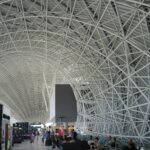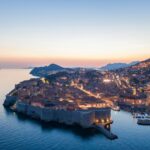ZAGREB, March 18, 2019 – A ceremony was held at the Maritime and History Museum of the Croatian Coast in Rijeka to mark the 300th anniversary of a charter declaring Rijeka a free port, with Maritime Affairs, Transport and Infrastructure Minister Oleg Butković saying that the event had marked the beginning of the city’s intensive overall growth.
The Port of Rijeka was granted a charter as a free port by Holy Roman Emperor Charles VI on 18 March 1719.
Addressing the ceremony, Mayor Vojko Obersnel said that the charter had been of critical importance for the city’s development. Important events in that development were the construction of roads towards the country’s interior in the 18th century and the construction of a railway in the 19th century, he recalled.
“The status that accompanied Rijeka at the time when it was part of Austria, Hungary, Italy, Yugoslavia and now Croatia, has made the city an important geographic point and opened it up to the world,” said Obersnel, noting that Rijeka’s turbulent and rich past had made it what it was today – an open and tolerant city with different ethnic groups, religions and cultures.
Speaking of projects to upgrade the port, Obersnel recalled one launched in 2003 with the support of the World Bank to modernise the port infrastructure. He said that the port development projects also included a plan to build a lowland railway, the D-403 road, a new container terminal and a ring road.
Noting that Rijeka has extraordinary economic potential, Minister Butković said a major investment cycle was underway involving seven port infrastructure projects worth 133 million euro, which, together with the road D-403, made total investments exceed 200 million euro.
Speaking of plans to build a lowland railway from Zagreb to Rijeka, Butković said that this year a tender would be published for the construction of the first section, running from Hrvatski Leskovac to Karlovac.
Rijeka Port Authority head Denis Vukorepa said that the container terminal at the port’s Zagrebačka Obala section was nearing completion, that possible investors had shown interest and that an agreement on a licence to operate the terminal would be signed in September.
He noted that all current projects would be completed in 2021 by which time the port would become a strong intermodal transport centre in the northern Adriatic.
Answering a reporter’s question, Butković said that he expected Chinese partners, too, to be interested in the Zagrebačka Obala terminal and the lowland railway, which is expected to be financed with EU funds as well as based on the concession model.
More news about Rijeka can be found in the Lifestyle section.







